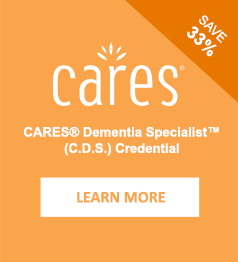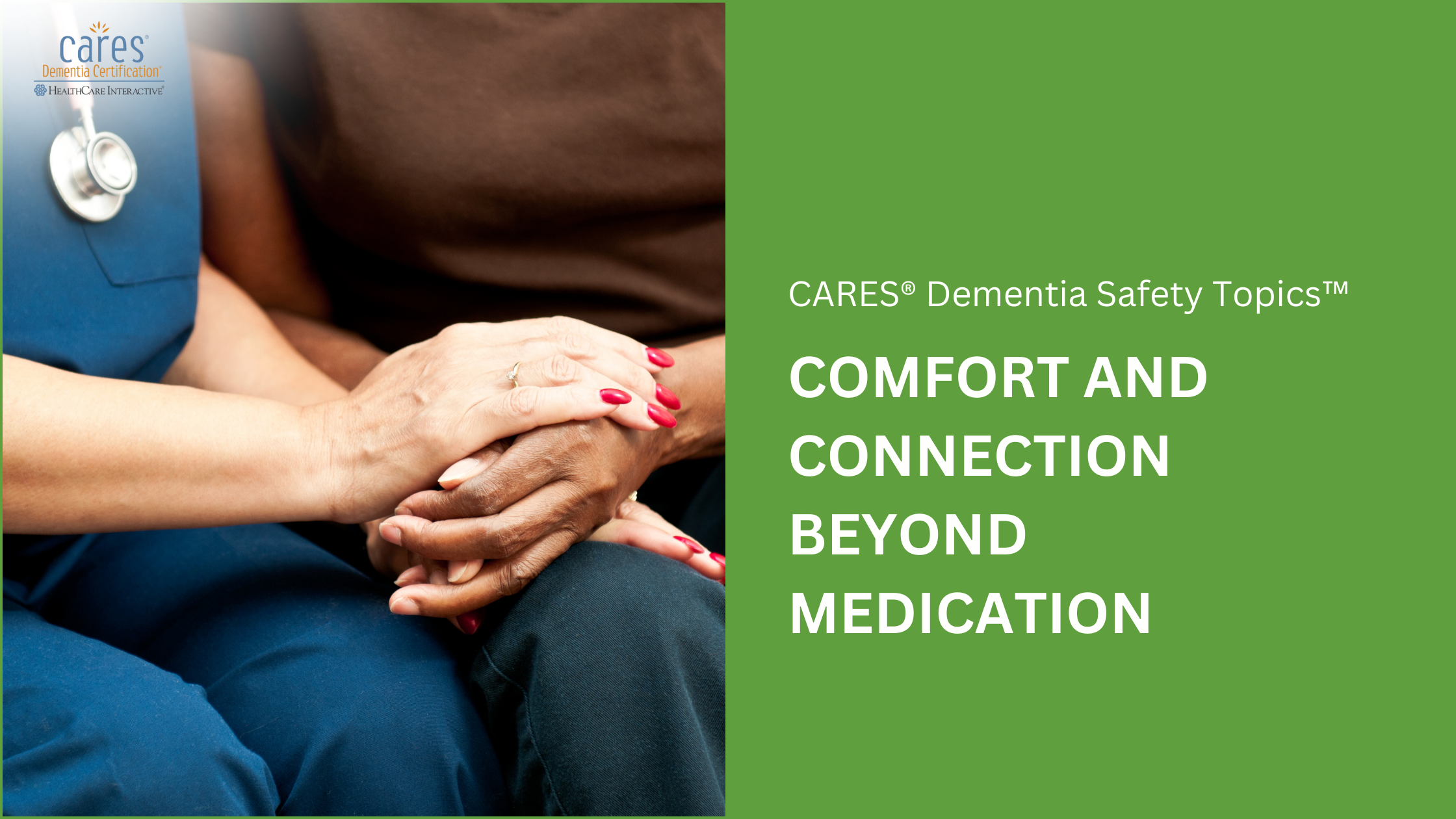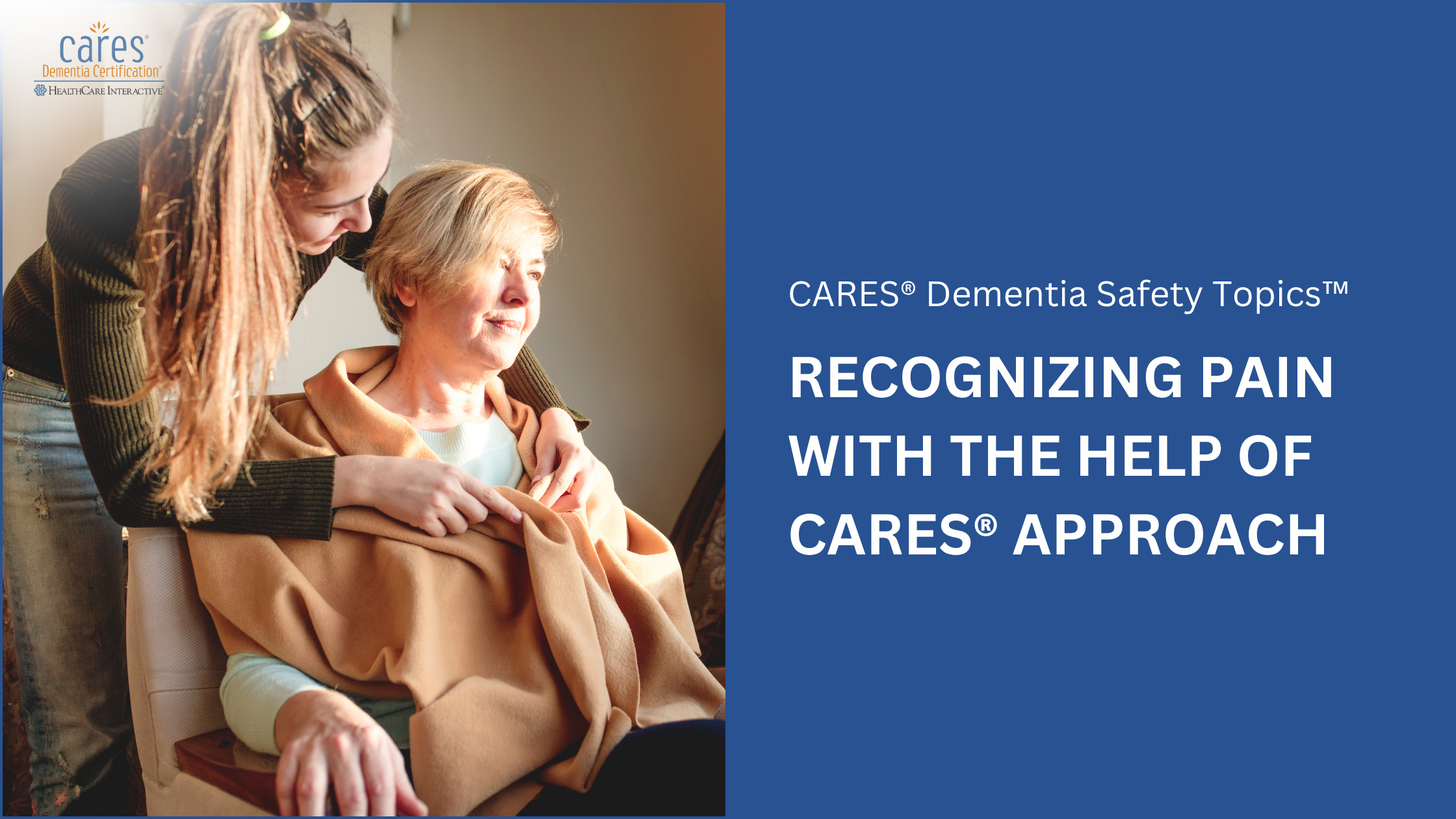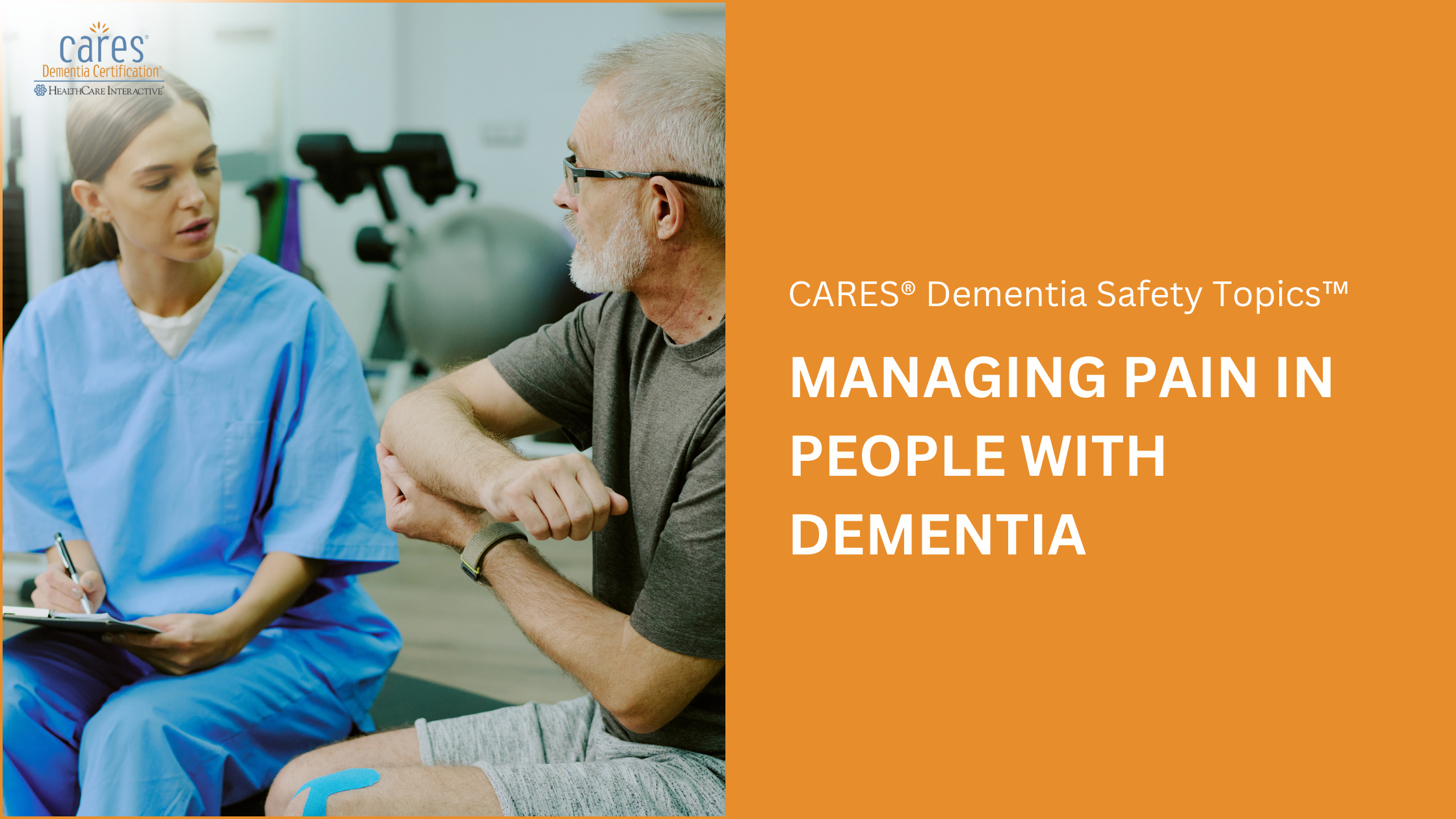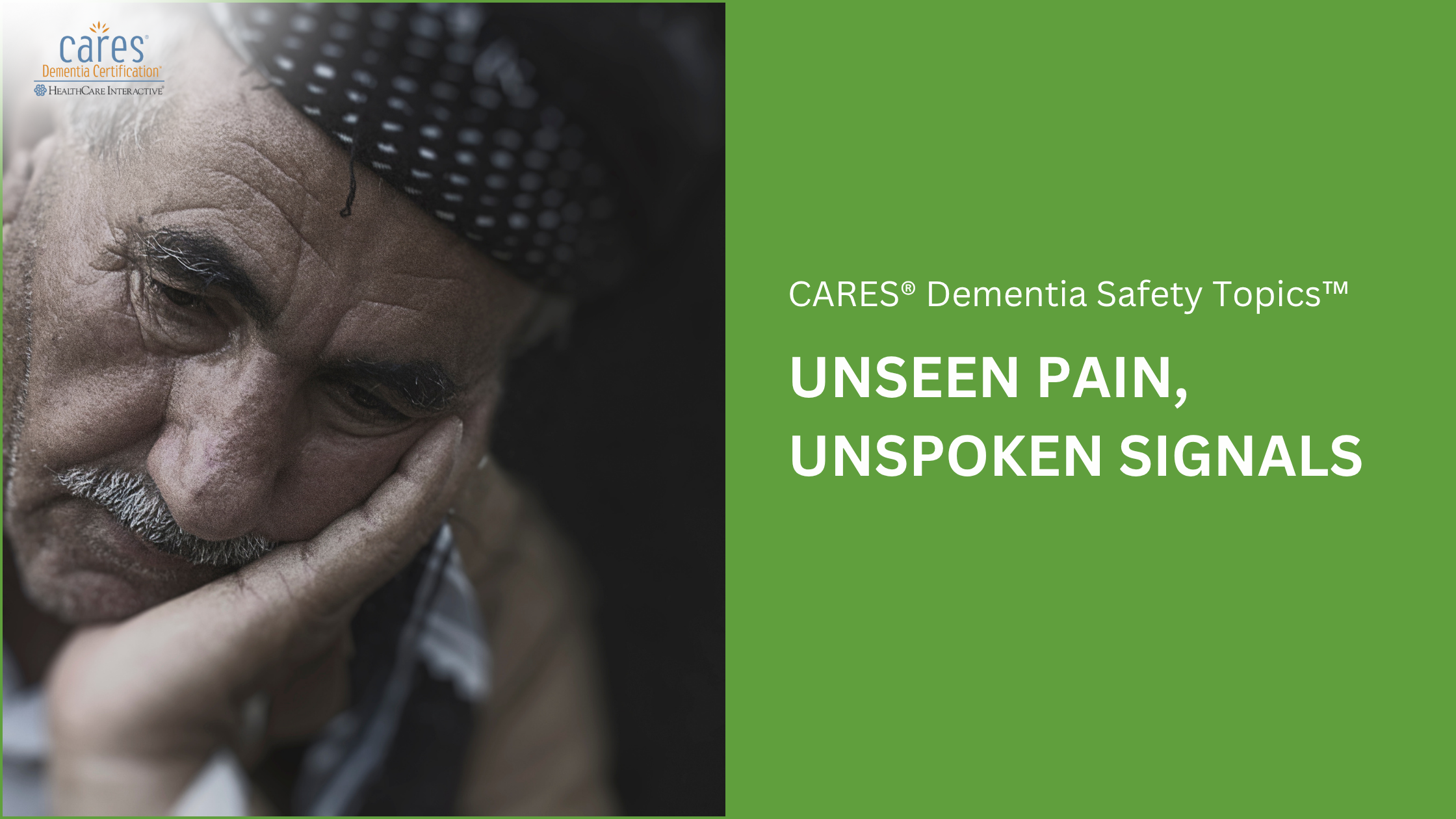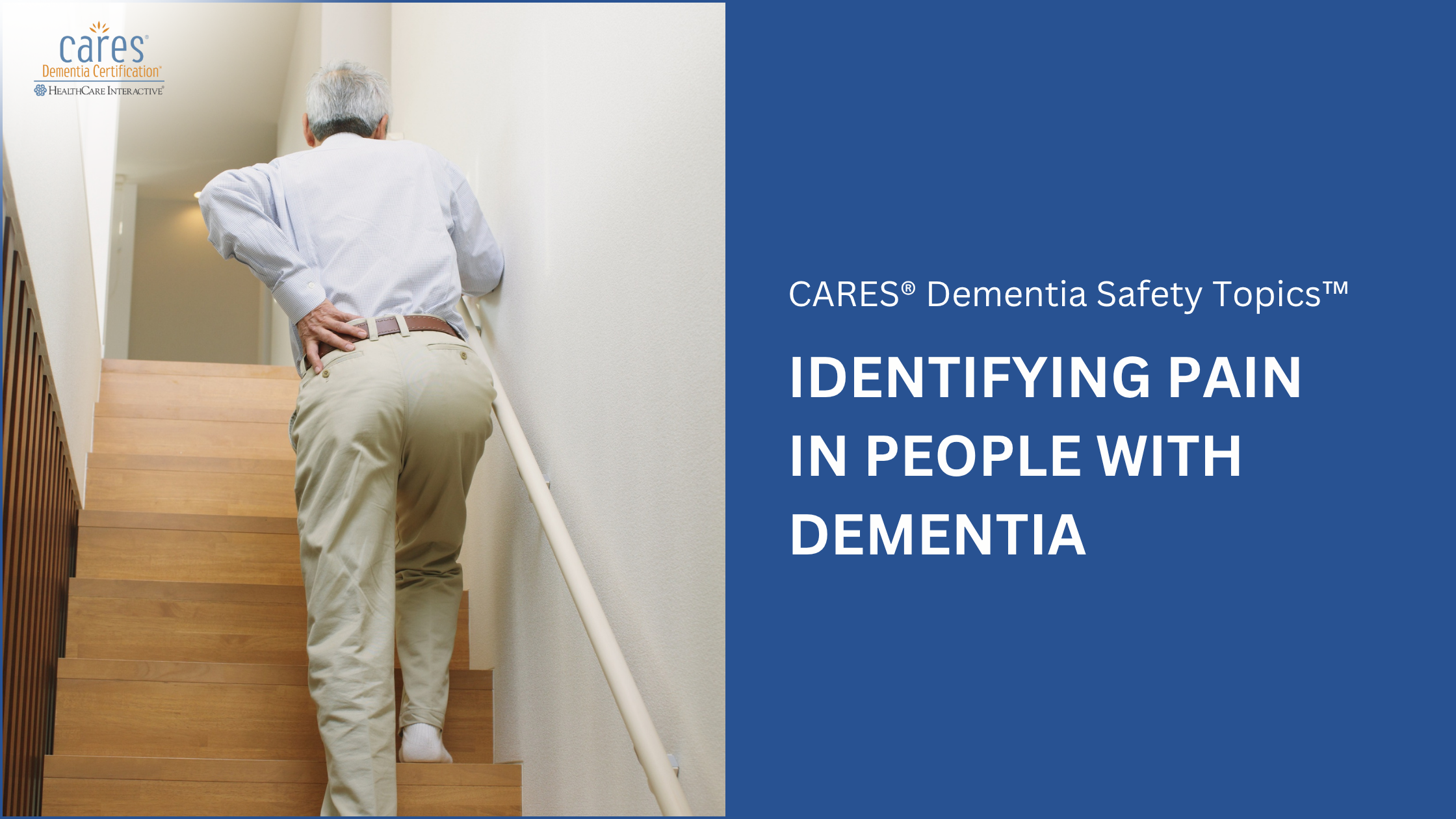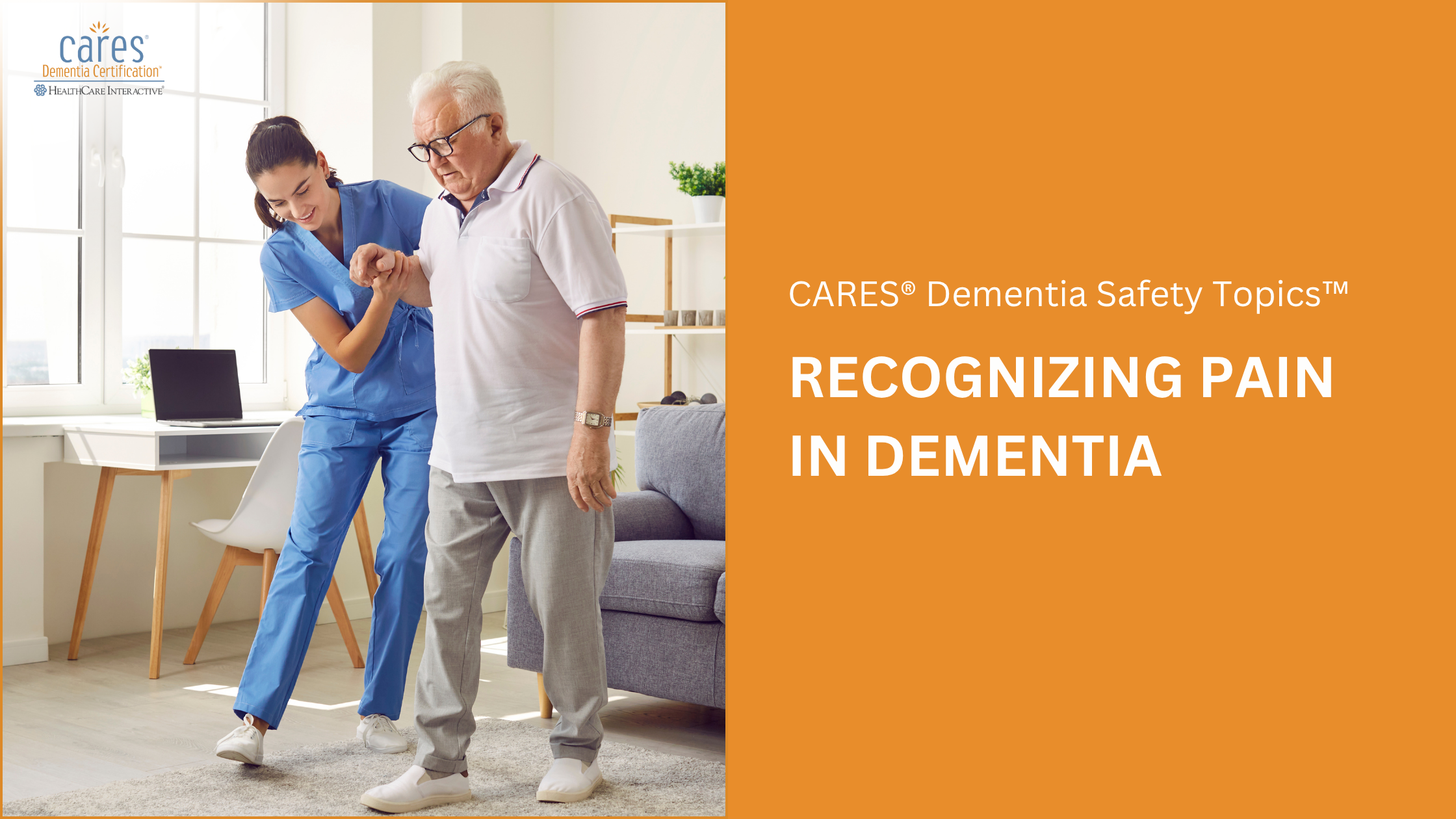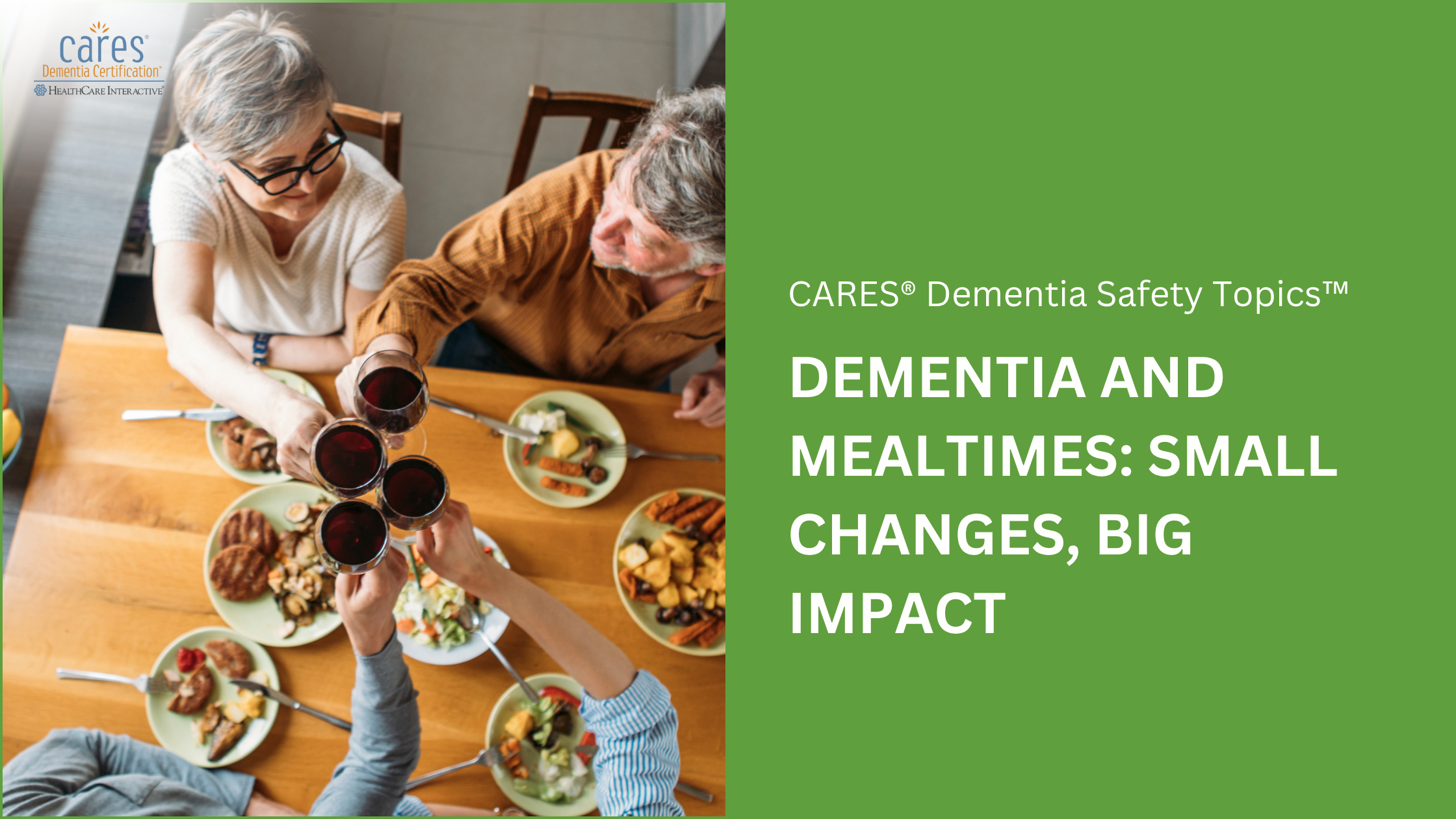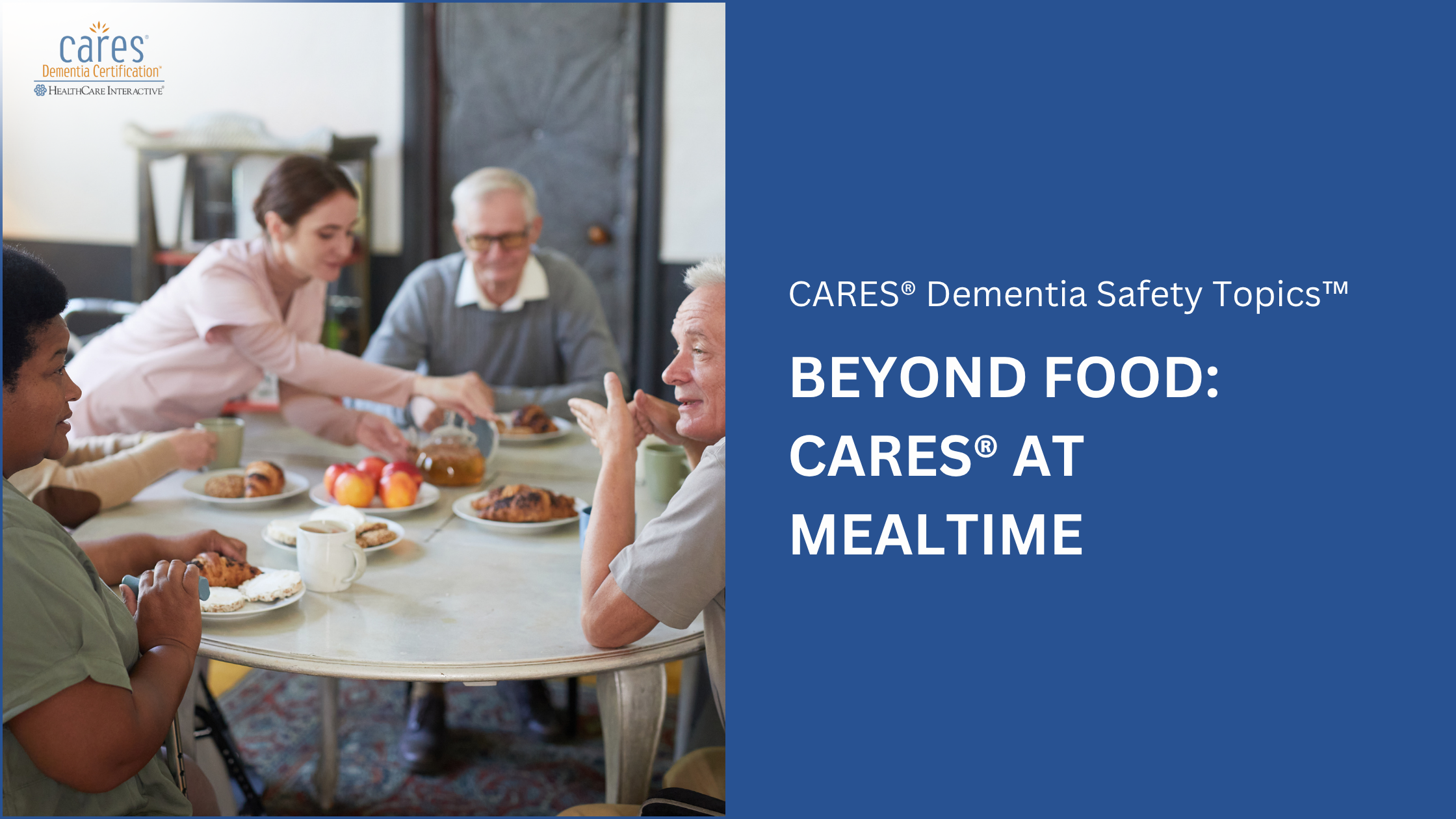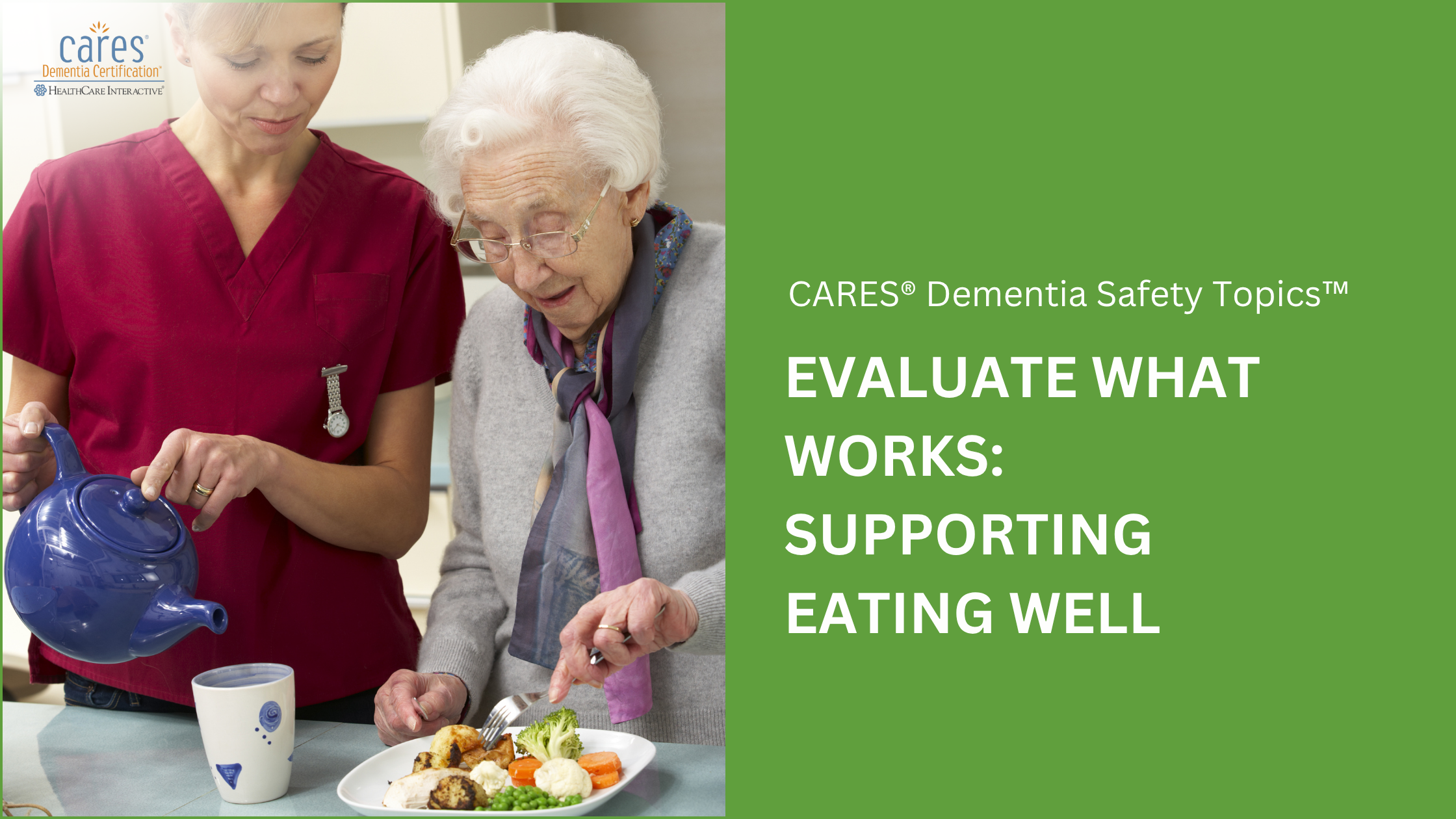Pain is a deeply personal and often invisible experience. For individuals with dementia, this invisibility can become even more profound—leading to pain that goes unnoticed, untreated, and misunderstood. Although many chronic health conditions are known to cause pain, research shows that pain is reported in people with dementia only about half as often as in people without dementia facing similar conditions. This raises an important question: do people with dementia feel less pain?
The Answer Is Likely No.
It’s far more likely that pain is simply going unrecognized. Dementia can impair a person’s ability to communicate clearly, making it difficult for them to describe pain, its location, or its intensity. As a result, caregivers and healthcare professionals may miss the subtle signs that something is wrong.
Why Recognizing Pain in Dementia Matters
Understanding a person’s history with chronic pain is critical. Untreated pain doesn’t just cause discomfort—it can impact a person’s overall behavior, interactions, and ability to perform daily tasks. Pain can be mistaken for confusion, agitation, or even aggression. But at its core, that behavioral change may be a cry for help.
Common Health-Related Sources of Pain
Pain in people with dementia is often due to common physical conditions, many of which can go unnoticed. These include:
• Arthritis or Joint Disease: Joint pain is one of the most common causes of discomfort, especially in long-term care settings. Up to 80% of residents in such facilities may have joint pain.
• Constipation: A very common but often overlooked source of discomfort.
• Bed Sores: Especially in those who are immobile or bedridden.
• Dental Problems: Cavities, infections, or gum disease may go unnoticed.
• Dry Mouth: May cause discomfort and difficulty eating or speaking.
• Urinary Retention: Discomfort from not fully emptying the bladder.
• Foot Issues: Overgrown toenails or unnoticed sores.
• Respiratory Issues: Shortness of breath or chest discomfort.
• Heartburn or Ulcers
• Cancer or other chronic illnesses
• Mental Health Concerns: Anxiety, depression, and worry can also contribute to perceived or actual pain.
Environmental Factors That Add to Discomfort
Pain doesn’t always originate from the body. Environmental discomfort can also affect people with dementia:
• Room Temperature: A space that’s too hot or too cold can cause physical distress.
• Noise: Overstimulating environments can lead to discomfort or anxiety.
• Uncomfortable Surfaces: Hard or unsuitable beds and chairs can cause physical pain, especially over time.
When Tasks Become Painful
Everyday activities may also become sources of distress:
• Physical Pain: Tasks like buttoning a shirt or brushing hair may hurt due to arthritis or other conditions.
• Emotional Pain: Struggling with a task may lead to embarrassment, agitation, or withdrawal.
Communication Barriers: The Biggest Challenge
Perhaps the most significant challenge is that people with dementia may not be able to describe what hurts—or where. Sometimes, the pain they feel may not even match the part of the body they refer to. This mismatch makes it even harder for caregivers to identify and treat the issue.
What Can Be Done?
To provide effective care, it’s essential to:
• Know the person’s medical and pain history.
• Be alert to nonverbal cues, such as facial expressions, moaning, restlessness, or changes in behavior.
• Consider environmental adjustments—reduce noise, ensure comfortable temperatures, and use soft surfaces.
• Break tasks into smaller, manageable steps to reduce frustration and physical strain.
• Consult healthcare professionals who understand how dementia affects communication and pain perception.
Pain is personal, but when someone is unable to express it, it becomes the caregiver’s responsibility to notice the signs. By taking a thoughtful, patient, and CARES® Approach, we can ensure that people with dementia are not left to suffer in silence.
To better support someone living with dementia, it’s essential to build your understanding and skills. As part of our commitment to caregivers and healthcare professionals, we’re offering 10% OFF any training and certification program with promo code BeautifulAugust at checkout—valid through Aug 31, 2025. Let us help you make the journey a little easier.
